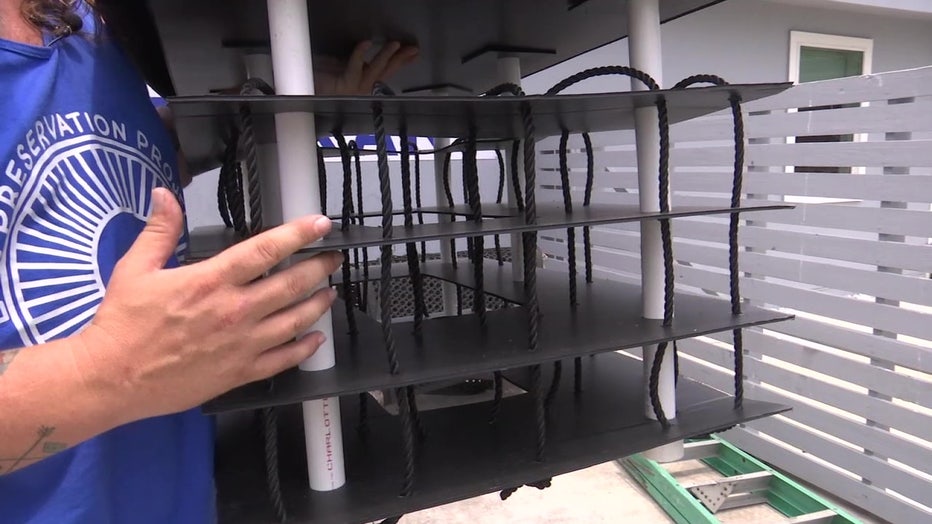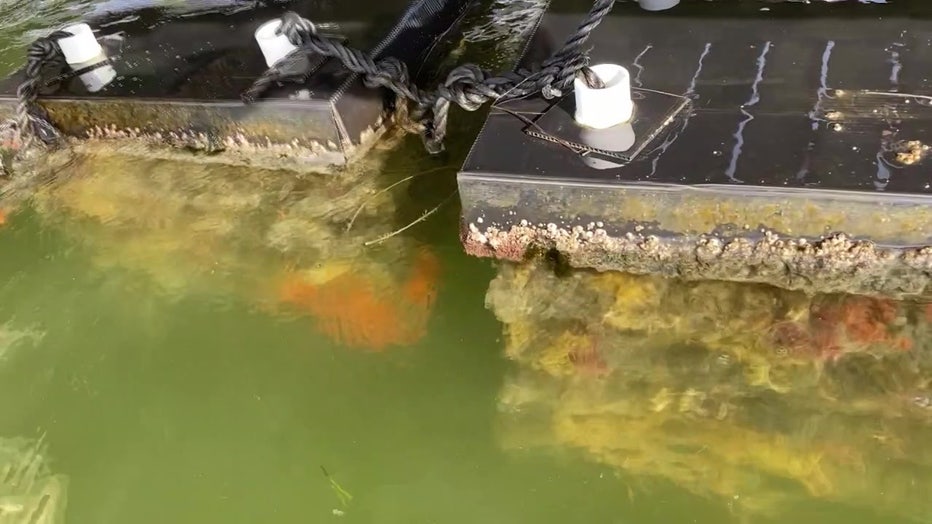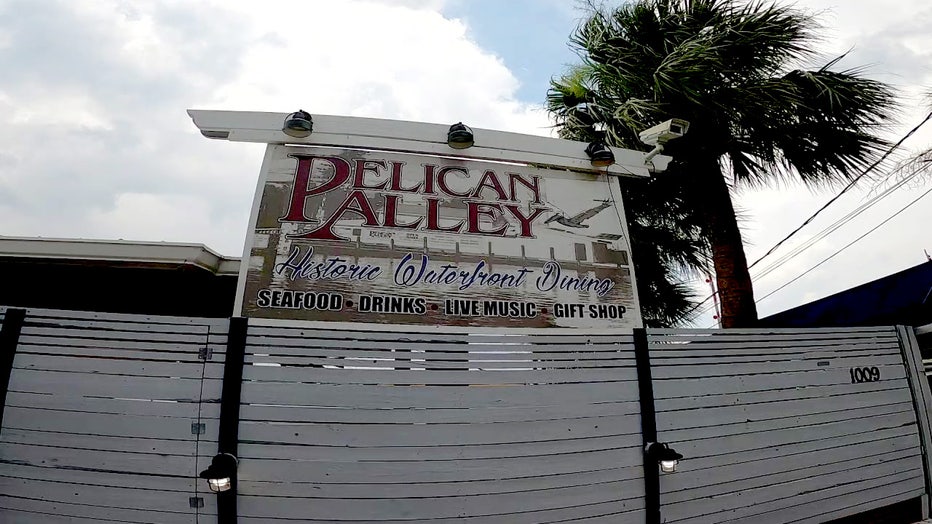Artificial reefs filtering out red tide in Nokomis
NOKOMIS, FLA - Under the dock at Pelican Alley in Nokomis, artificial reefs are starting to do their job.
Garrett Stuart is a scientist and an educator, and is working to help our waterways. His nickname is Captain Planet. He's working to install artificial mini-reefs across the state.
"These bad boys are university tested and proven to filter an average of 30,000 gallons of water every day and an average of 300 fish and 200 crabs per a year that they house," he explained.

Installed just days ago, the reefs are already forming. Their job will include filtering red tide out of the water.
RELATED: Tampa Bay ‘better than last week,’ but anglers worry as red tide battle continues
"As an algae scientist I’ll tell you Florida doesn't have an algae problem, it has a nutrient pollution problem and yes, Karena brevis, red tide is natural. It’s older than humans but when we humans take a natural plant and add miracle grow to it. It starts to grow unnaturally," added Stuart.
RELATED: Lawn clippings, dog droppings, fertilizer all contribute to red tide, scientists say
Animals like bivalves, oysters, sea squirts, start to attach to the marine materials. The artificial mini-reefs are proven to last a lifetime.

"These artificial reefs literally eat nitrates and phosphates, consume them out of the water and filter them. A lot of the homies that grow on the reefs literally eat algae. They eat cyanobacteria, they eat the red tide. This is one of the best things we can actually do," shared Stuart.
Through his non-profit Eco Preservation Project, Stuart is able to install the mini reefs through donations.
RELATED: Red tide leaving Tampa Bay, intensifies on beaches
Pelican Alley's owner, Tommy Adorna said ‘yes’ when asked if he'd like to install the mini reefs on his dock.
"Water quality is very important. People don’t want to come down and have dinner if the water is disgusting and the red tide and they’re coughing. I’ll do what I can to help with the environment," said Adorna.

Crabs have already moved in, soon to be followed by fish. The mini-reefs create a home for creatures water relies on.
"We have to start protecting our ecology," added Stuart.
Artificial mini-reefs can be purchased for $300, or donate any amount toward the project at the link below.
LINK: To find out more visit: www.ecopreservationproject.com.


